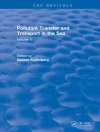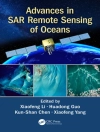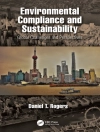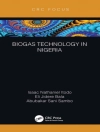Through numerous color figures and tables, this book presents the most up-to-date knowledge on climate and environmental change in China. It documents the evidence and attribution of climate and environmental changes in the past few decades and discusses the impacts of climate change on environments, economy, and society. The book further provides projections of climate change and its impacts in the future. Finally, it offers the climate change mitigation and adaption technologies with strategic options which will be of interest for policy makers, researchers and the general public as well.
Inhaltsverzeichnis
Climate, Environmental, and Socio-economic Characteristics of China.- Climatic and Environmental Changes in China.- The Attribution of Climate Change and its Uncertainty.- Impacts of Climate Change on the Environment, Economy, and Society of China.- Projections of Climate Change and its Impacts.- Climate Change Mitigation and Adaptation Technology and Policy Options.- Strategic Options to Address Climate Change.- Concluding Remarks.
Über den Autor
Qin Dahe, a geographer, was born in January 1947. He is an academician of the Chinese Academy of Sciences and an academician of the Third World Academy of Sciences. He graduated from the Department of Geography of Lanzhou University in 1970. From then on he engaged to cryosphere science and climate change studies. He has published over 300 papers and books. He systematically studied the physical processes within the Antarctic ice sheet surface snow and the records of climate and environment. Dr. Qin set up the State Key Laboratory on Cryospheric Science in China. He advocated the concept of cryosphere science, and built the framework of cryospheric science from the aspect of interaction between cryosphere and other spheres and the adaptive strategies of cryospheric changes. He involved the third, and leaded the fourth and fifth IPCC scientific assessments, particularly the physical science basis of climate change, which made great contributions to a deeper sight into climate change science. As the administrator of China Meteorology Administration, he hosted the Strategy of Chinese Meteorological Service and Development, putting forward the three strategies: public, security and resources oriented meteorology. He is the pioneer in opening the door of science data sharing in China. IPCC undertaking he involved gain him a 2007 Nobel Peace Prize, and Dr. Qin got the International Meteorological Organization Prize, elected Honory member of American Meteorology Society (AMS), best Paper Award granted by National Oceanic and Atmospheric Administration of US, and 2013 Volvo Environmental Prize.












